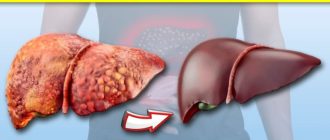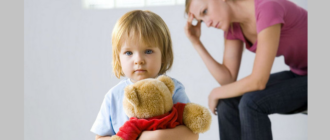What is hyperactivity and attention deficit syndrome? How to recognize and treat this disease? What to pay attention to parents and how to help the child - read about this in our article.
Contents
- What does the diagnosis of “attention deficit and hyperactivity deficiency” mean?
- Causes of the disease of "attention deficiency and hyperactivity deficiency"
- Diagnostics "Syndrome of attention deficit and hyperactivity"
- When is the help of specialists in the syndrome of attention deficit and hyperactivity syndrome?
- Do I need to treat "attention deficit syndrome"?
- Tips for parents of a child with ADHD syndrome
- "Syndrome of attention deficit and hyperactivity" - psychological support in the family
- Video: Hyperactive child. School of Dr. Komarovsky
A hyperactive child is not just a term denoting an active and restless baby. If the child is characterized by increased impulsiveness, restlessness, hardly concentrated and often distracted, has difficulties with falling asleep and restless sleep, it is necessary to consult a neurologist.
What does the diagnosis of “attention deficit and hyperactivity deficiency” mean?
A doctor can make a diagnosis only after prolonged observation of the baby’s behavior, as well as a number of tests and tests. If signs of the disease are revealed by the “attention deficit and hyperactivity deficiency” (ADHD), then parents will need great patience and attention to the child to help him adapt to the house of the house, and then in the children's team.
- SDVG today occurs in a sufficiently large number of kids - according to medical research, about 10% of children suffer from them. It is worth noting that this syndrome is diagnosed in boys 4-5 times more often than in girls.
- ADHD is a disease that includes a whole group of violations and is detected on the basis of the behavior of the child. In addition to the problems associated with concentration, memorization, perseverance, the kids most often have a disorder of behavior, emotional instability, older children have problems with academic performance and communication with peers.
Causes of the disease of "attention deficiency and hyperactivity deficiency"
The exact causes of the development of children's hyperactivity syndrome cannot be established, since there is a combination of various factors affecting the development of the nervous system.
The following pathologies include biological factors:
- Complications during pregnancy and childbirth that caused fetal hypoxia.
- Infectious diseases during pregnancy.
- Intrauterine infections, especially in the first trimester.
- Early or late pregnancy - until 18 or after 40 years.
- The birth of a premature baby (weighing up to 2500 g).
- The mother’s consumption during the period of bearing the fetus of some medicines, alcohol, smoking.
- Genetic factors - hereditary predisposition is confirmed in 50% of cases of the disease.
Psychosocial factors can also affect and aggravate the disease:
- Severe psycho -emotional atmosphere in the family, lack of emotional warmth when communicating between family members and in relation to children.
- Stressful or traumatic situations experienced by the child.
- The wrong reaction of parents to the behavior of the baby, inconsistency of the requirements for the child.
The daily routine in the family and the diet can be attributed to related factors:
- Violation of sleep and wakefulness, walks in the fresh air.
- Disadvantage in the diet of foods containing protein.
- Lack of vitamins and trace elements.
- The presence in the daily menu of a large number of "harmful" foods, special in the morning - fast carbohydrates, carbonated drinks, etc.

Diagnostics "Syndrome of attention deficit and hyperactivity"
As noted above, to establish an accurate diagnosis, you must seek advice to a neurologist. The doctor will conduct a comprehensive examination in which the main role will be played by observation and the correct assessment of the behavior of the child. General tests, brain studies (MRI, EEG) will also be prescribed.
The syndrome of attention deficiency and hyperactivity can manifest itself in different ways, have mixed types of symptoms:
- Hyperactivity - characterized by constant increased activity and excitability of a child exceeding the usual norms of children's behavior. Hyperactivity can be discussed if the manifestation of active activity and mobility is not a manifestation of temperament, but creates problems for the child and others.
- Attention deficit - This problem includes several aspects, such as focusing, maintaining, switching attention. For each age group, there are certain average holds of attention. In case of ADHD syndrome, such norms are violated or not in accordance with age. The child is not able to concentrate, can easily be distracted, switching both to objects of the external environment - objects, sounds, and personal internal experiences - random memories, experiences, associations.
- Impulsiveness - This is a disorder of behavior in the form of insufficient control over the situation.
The child excessively emotionally reacts to requests and prohibitions from adults, as well as criticism in his direction, it is difficult to agree with him, to explain the reason for a decision. - Violation of logical thinking - when completing the task, the child is not able to fully understand the instructions, in a hurry to do faster, does not evaluate the complexity of the task and the correctness of the implementation.
- Lack of behavior control -The child cannot provide the consequences of any of his actions, often undergoes unnecessary risk, injured, falls into unpleasant situations.
Please note that we are not talking about the problems of education - children with ADHD syndrome often cannot control their behavior, do not perceive adult requests and do not realize the consequences of their actions.

When is the help of specialists in the syndrome of attention deficit and hyperactivity syndrome?
If you notice the following signs in everyday behavior in your child, you should consult a family doctor, neurologist, and a child psychologist .
Когда необходима помощь специалистов при синдроме дефицита внимания и гиперактивности:
- The child is more mobile or overexcited, cannot sit still, his behavior differs from the behavior of peers.
- Constantly makes some movements, sometimes involuntary-spins, dangling his feet, waving his hands, says a lot.
- He forgets or loses things, breaks toys, often is scattered and cannot concentrate in a certain lesson.
- When completing the tasks, it is constantly distracted and quickly gets tired, cannot bring the work begun to the end, quickly loses interest in games, classes.
- He does not hold back emotions, which can express in crying, screaming, leads to quarrels and fights with other children.
- It cannot show patience when it is necessary, for example, to wait for your turn.
- It is often injured due to rash actions or loss of coordination.
- He does not perceive requests or comments addressed to him, does not obey.
- The listed problems with behavior are constantly observed in different setting - at home, on the street, at school, sports section.
- The difficulties of behavior violate performance and communication in society, despite the developed intelligence of the child.
Do I need to treat "attention deficit syndrome"?
Many parents have an opinion that the above-given behavior disorders will “develop” over time, and some medical intervention will make the baby mentally unhealthy. Do I need to treat "attention deficit syndrome"?
- As they grow older, the child can gradually overcome only the manifestation of signs of hyperactivity. In adolescents, increased motor activity is most often replaced by fussiness and state of increased internal stress and anxiety. For such children, irresponsibility, lack of self -organization and self -control, conflict or isolation, problems with communication and reckless behavior, often to attract attention, remain characteristic of self -organization and self -control.
- A child with ADHD needs a comprehensive treatment that will include psychological and pedagogical support from the family and specialists, as well as courses of medications. This is necessary because the nervous system of such children cannot independently cope with the loads, especially in the transition periods of growing up.
- Neurocorrection includes classes on the development of fine motor skills, exercises for the tongue and facial muscles, the course of physiotherapy exercises, stretching, massage, the study of relaxation and rest methods.
- Supporting a psychologist is to use a special complex of developing and training techniques aimed at compensating for brain functions. Such classes help the child cope with the loads, adjust the behavior and study effectively.
- All types of classes and exercises must be performed under the supervision of specialists and repeated them regularly at home, in the usual environment. This approach will also make it possible to establish psychological and emotional contact between the radio studios and the child, which is very important for correcting the behavior and reactions of the baby to external situations.
Medicines, including phytotherapy and homeopathic remedies, should only be taken under the strict control of the observant doctor, without violating instructions for time, duration and dosage of taking.
Tips for parents of a child with ADHD syndrome
To help the baby cope with the disease, parents need constant attention and support:
- Children with ADHD syndrome often incorrectly perceive criticism and punishment, but quickly and willingly react to encouragement and praise. Adults are recommended to formulate all the requests addressed to the child in a brief and clearly calm tone. Act in series, do not give the child several tasks at once, do not forget to praise for each completed task and emphasize that the baby coped very well.
- Adhere to a certain regime of the day - strictly observe the time of sleep and wakefulness, eating, homework and walking.
- Direct the baby's excess energy to physical exercises or outdoor games. At the same time, alternate active classes with rest and relaxation, do not allow excessive overexcitation of the child.
- Formulate with your child certain “rules” of your family. They must correspond to the age of the baby, be simple and understandable. There should not be too many prohibitions. Do not forget to encourage the child for compliance with these rules.
- Review your communication with the child and your own reactions to his poor behavior. Do not give negative assessments of the personality of the baby, but only to his actions. For example, never use: “What a lazy person you are, you have a pigsty in your room!" Instead of this: “Please get in your room, I think it's best to start with toys cleaning, let's put the cubes in the basket ...”. Do not forget to praise for good behavior and actions!
- Do not compare your child with other children, do not use evaluative characteristics of peer behavior in the presence of a child - both positive and negative can be incorrectly understood by the baby.
- Training classes should be adjusted in time and degree of complexity for the child. Large training loads will lead to fatigue and the appearance of rejection to study, in the future of school education this can be aggravated by emotional stress. Therefore, starting classes with the baby, follow his involvement and interest. Change the lesson if you see that the child is tired. Select teaching methods in a game, associative form. Do not forget about the development of memory and concentration.
- Create for the child the conditions for classes by his age - space for games, the workplace, the necessary stationery and educational supplies. During classes, nothing should distract the child. Help with homework, if necessary. No need to do the task for the child-you must explain how to perform it, indicate if the child did something wrong. Keep complete calm, repeat and explain as many times as necessary so that the child himself copes with the task.
- Reduce the time of viewing the TV, classes at the computer, tablet and other gadgets to prevent overstress.

"Syndrome of attention deficit and hyperactivity" - psychological support in the family
- A baby with ADHD syndrome needs a sense of emotional connection with parents. Give the child the time when he returns from the kindergarten or school, ask how the day went, what he did, what he liked, what difficulties arose in. Tell us how your day has passed, what you plan to do in the evening. Such a conversation should be based on mutual interest and trust. Spend the evening in a calm atmosphere, it will be very useful for a child to take a warm bath, listen to a fairy tale or a story before bedtime.
- Teenage schoolchildren also need to communicate with parents. Take the time to the problems of your child - do not crush, do not arrange interrogations, but try to build friendly communication. Share your thoughts, plans, ask the child’s opinion, try to understand his interests, experiences. Respect your personal space, while letting your child understand that you are not indifferent to his hobbies, that you will support him in any situation.
- Do not forget that children need attention from both parents. As a rule, developmental games, crafts, help in preparing homework, reading before bedtime - all this remains in the zone of mother's responsibility. Then dad can devote time to the child in their free time - walks, active rest, sports or creative circles, a joint hobby.

With the right behavior of parents and their sufficient patience, as well as observation from specialists, Sidrom SDVG is not a sentence. Such children are intellectually developed, often have pronounced creative talents (drawing, music), have the ability to accurate sciences, successfully study and adapt in the social environment.
Video: Hyperactive child. School of Dr. Komarovsky
Pay attention to other useful articles of our site:








